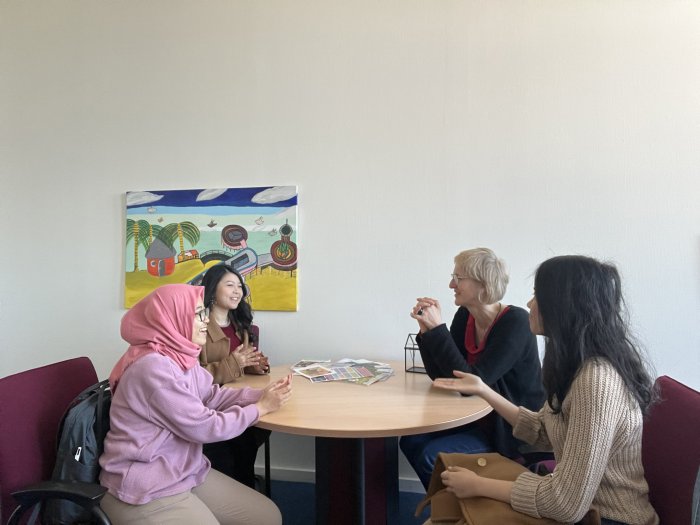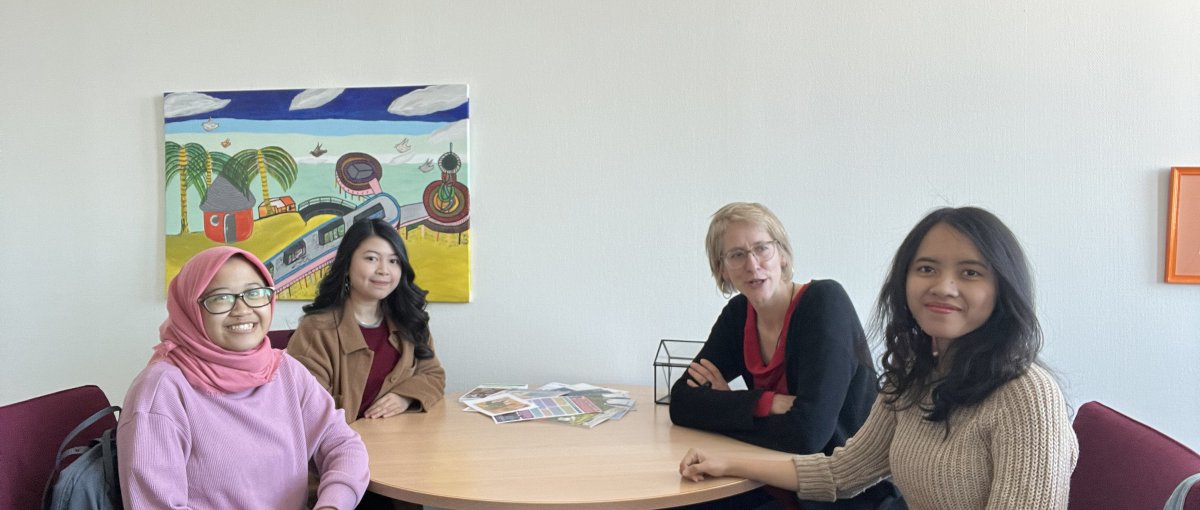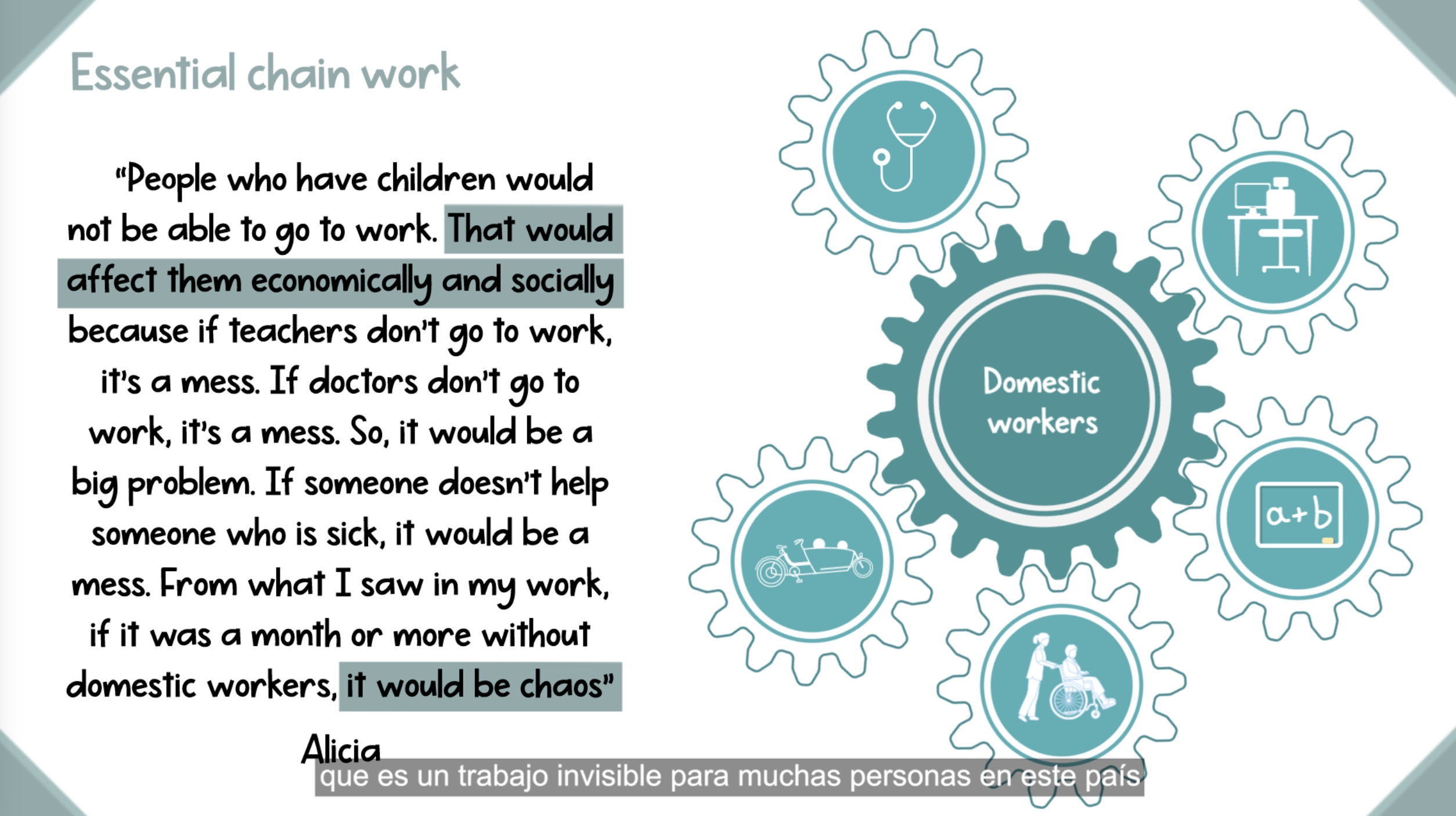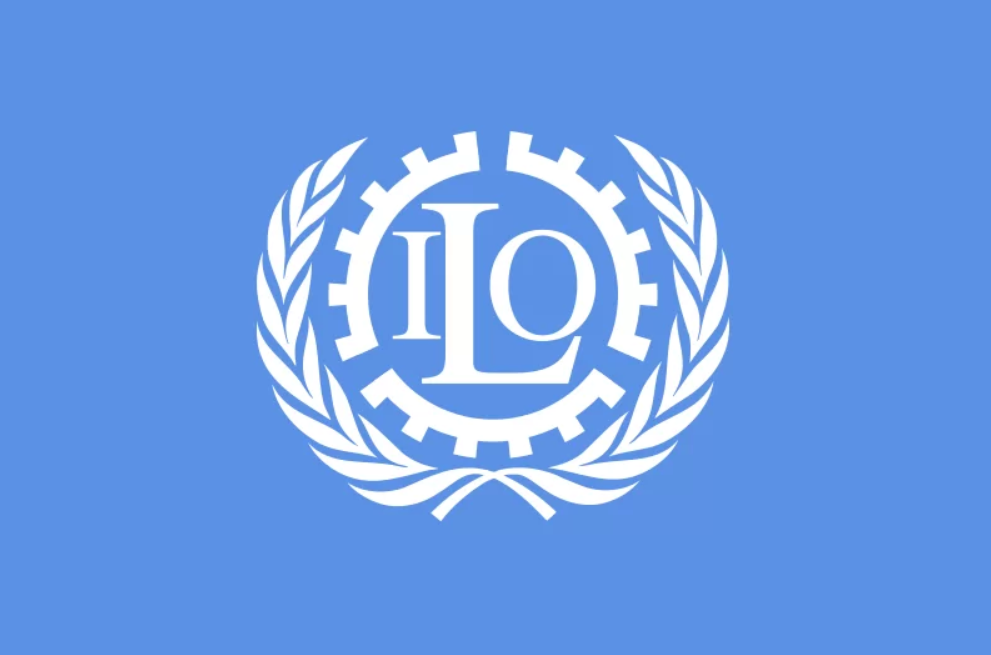The rights of migrant domestic workers in the Netherlands
Dr Karin Astrid Siegmann in conversation with Ismi Nabila, Ivy Hatmanti and Kustia Wulaningsih (Wulan) who are taking her course on ‘Gender at work in development’.
The rights of migrant domestic workers in the Netherlands
Karin (KAS): A very warm welcome. Thanks for agreeing to have this conversation on the event we held a month ago called ‘It takes two to tango’ on migrant domestic workers’ rights and good employership. My name is Karin and I was one of the co-organizers of the event.
Ismi (IN): My name’s Ismi. I'm from Indonesia. I'm interested in this topic because there are so many domestic migrant domestic workers from Indonesia in the Netherlands. I’m a current student in the Gender at work in development class.
Wulan (KW): My name’s Wulan. I'm also from Indonesia and also a student of Gender at work in development. We talk about domestic workers in the class so it's really interesting to follow up on those discussions.
Ivy (IH): Hello, my name’s Ivy, also from Indonesia and also a student of the Gender at work in development class. I’m very interested in this and wanted to learn about the situation of domestic workers.
IN: Why was the event called it takes two to tango?
KAS: Good question. We chose the title because the English expression suggests that you cannot achieve anything on your own. You need a partner to do it. And that's what the migrant domestic workers with whom I've been working over the past years have experienced - they need the support of their employers to realize their rights. There also needs to be a partner to actually implement those rights. They also hope that their employers will become better employers, that they will support their political demands, which is both about better regulation for migrant domestic work, but also about regularization of the many undocumented migrant domestic workers.

IH: I'm curious about the employers; do they also support domestic workers’ rights?
KAS: So far, that's not really the case, though there are a few employers who do. Some of the people who co-organized the event at ISS are activists - members of unions or migrant organizations - who are raising awareness about migrant domestic workers. What the migrant domestic workers who co-organized the event want is for more employers to become aware that these rights are independent of whether or not there is a contract, of whether or not people are working casually or full-time, of whether workers are undocumented or regular migrants. So raising awareness amongst employers was an important objective of the event. But not many employers support this. And that was why we had hoped to have employers at the event. For me, that was one of the disappointments of the evening; maybe not surprizing, but disappointing that there were hardly any employers in the room. Later, some people told me that they were an employer of domestic workers but that they hadn’t felt safe sharing that.
‘We need to think about how to organize events that will make employers more open to sharing their side of the discussion.’
KW: That's what I thought. I think there are some employers who are not very comfortable sharing that they are employers. So maybe the space wasn’t safe enough. We need to think about how to organize events that will make employers more open to sharing their side of the discussion.
KAS: Indeed. I had thought that having the input of employers sharing their experiences of trying to be a good employer of migrant domestic workers and how they also support them politically, would be an invitation for other people to share their experiences and their dilemmas. But those people didn't come. What would be your ideas about how to reach out to employers more effectively?
IN: I think I remember that you asked the audience whether there were any employers present?
KW: Yeah. I think they felt they were being pointed. They were a little bit taken aback.
IN: And of course, as they hire undocumented migrant workers they possibly feared that they would face some consequences.
KAS: Yes. In the Netherlands there’s quite a big fine for hiring an undocumented person. The fine is over €4,000 euros.
IH: It's very challenging to invite an employer to talk about how they treat their domestic workers because maybe they also feel guilty for hiring them.
KAS: Indeed. I liked the idea that Leontine Bijleveld, a lawyer, proposed; namely, to feature role models, people who are good employers and who can encourage others to do the same. That might be a good way ahead. But that's about the future. I'm more curious to hear how you look back at the event: what surprised you, what struck you?
IH: After the event, I read a lot about domestic workers in Indonesia and how their rights are so different from the rights of domestic workers in the Netherlands. People don’t really care about rights for domestic workers in Indonesia. Looking back at the event at ISS made me reflect on how domestic workers here in the Netherlands and the domestic workers in Indonesia face similar issues, although domestic workers in the Netherlands have more privileges, with people here still wanting to support them. In Indonesia, even the government doesn’t want to support domestic workers and many employers are abusive too. I find it rather sad to reflect on how the situation is similar but, at the same time, so different.
KW: What surprised me is the harassment faced by domestic workers. I remember an Indonesian migrant worker telling us during the ISS event that she came to the Netherlands because of her family situation. She came here with some male colleagues but she was the only one to face harassment. And it didn’t only happen once but was repeated and I just realized how vulnerable domestic workers, especially women, are here.
KAS: Domestic workers contribute enormously to society: they take care of children, they take care of our homes. They do essential work for society. And this is what they get in return. These stories have been familiar for a long time. But still, whenever you hear these stories, these experiences, it's very sad and it makes me angry.
IN: What depresses me the most is that when we look at the current situation, we realise that it’s not very different from what happened back when the Dutch still colonized Indonesia. If we look at the historical context of domestic workers when the Dutch were in Indonesia, we see that they also used to hire indigenous people in their homes. And even though we say that we have abolished all practices of slavery, the story told by Siti during the ISS event is not really different from what happened back then. Looking at the relationship between Dutch colonialism and Indonesia, we see a hierarchical division of labour - there’s European and then Arab and Chinese, and then Pribumi. Pribumi means indigenous people and we are the lowest level of society. So it's not really different. That's what surprised me the most.
KAS: Those racial hierarchies were established under colonial rule. I don't know about Indonesia, but it's something that I hear about in many parts of the world; how the relationships between domestic workers and their employers are still structured by systems that were shaped through colonial rule. During the event we were talking about different conditions for people from different parts of the world and there you also see differences that follow such a racial order. You see how this heritage still structures the working conditions and the feeling of ownership. Many employers think they can take charge and demand presence, and that the domestic worker doesn't have much power.
IH: I feel like we haven’t really progressed that much, like we still see domestic workers as people who are below us. We still have a long way to go to raise awareness about how we should treat domestic workers, to realise that domestic work is a real job.
KAS: What do you think is necessary for that awareness or for that change?
KW: I think we need to change how we think about productive and reproductive work because domestic is very close to reproductive work. One of the quotes that I remember from the video shown during the ISS event is that without domestic workers the economy and society would fail because, for example, there would be no one to take care of children. So a teacher, for example, wouldn’t be able to go to work because she’d need to take care of her child. I think the reason that domestic workers aren’t seen as doing a real job is because domestic work is reproductive work. I think we need to change how we look at reproductive work in order to change and to value domestic work.
KAS: Yes. I also remember in the video that the domestic worker being interviewed said that if domestic workers weren’t there, society would become a mess. But the question remains, how to achieve that. Because for over 10 years now we’ve had an international convention which recognizes domestic workers and gives them rights just like any other workers. There have been lots of discourses about exactly that, about how reproductive work, the work of care, the work of cleaning and reproducing households, societies, communities, is crucial for the economy and that it needs to be recognized.
But despite efforts by unions and union federations of domestic workers, the material conditions haven't changed so much. On the contrary, what I see in Europe is that many of the social security systems that were established after World War Two have been gradually demolished over the past 30-40 years. But somebody needs to take care of human reproduction. So increasingly there's a demand for domestic work and it's very often dumped on migrants, who are seen as more docile and cheaper. So, yes, demand is increasing and maybe the discourse is demanding more rights and respect but materially, I'm a bit pessimistic about change.
'... by raising awareness and recognition, domestic workers will also get better material conditions for the work.'
IH: But I feel that at the same time there is hope for the younger generation. Before attending the Gender at work class, for example, I didn't really think about domestic workers rights. But I now realize that domestic workers are doing a real job. The class made me reflect on this; on how domestic work is actually work. And also on how I can contribute to changing people’s view of domestic work. So I feel that, as a younger generation, we might still have hope. We have changed our perspective about domestic work.
KAS: That's a very nice. I'm curious, what types of ideas did you get?
IH: For me, it was to see domestic workers as a workforce. I don't know that we can really change the law or anything but at least we can change people’s perspective and show them that domestic work is a job.
IN: I agree. We have to keep raising awareness about how important domestic workers are to the national economy. For example, I read a study that said that, because of migrant domestic workers, women’s participation in the labour force, especially woman doing productive work, is increasing. So it's very important to acknowledge how important domestic workers are. I think it's also important to keep discussing this but with a bigger audience than only ISS. So involving other universities across the Netherlands and making more noise about it. I think that’s a start. It's a long way to go but if we do nothing, it’ll get worse. It’s important to keep raising our voices and awareness.

KW: I agree with Ivy and Ismi that we need to raise awareness and ensure that domestic work is recognized as proper work. I think it's related to gender injustice, where redistribution will follow recognition. I think that by raising awareness and recognition, domestic workers will also get better material conditions for the work.
KAS: Thanks for those optimistic outlooks. Actually, there is a follow up planned. There will be a couple of events in the so-called week against human trafficking, and the organizers of that want to follow up on the conversation that we had at ISS. It's funded by the municipality of The Hague, so there’ll be a broader audience. So that’s something to follow up on.
The rights of migrant domestic workers in the Netherlands




